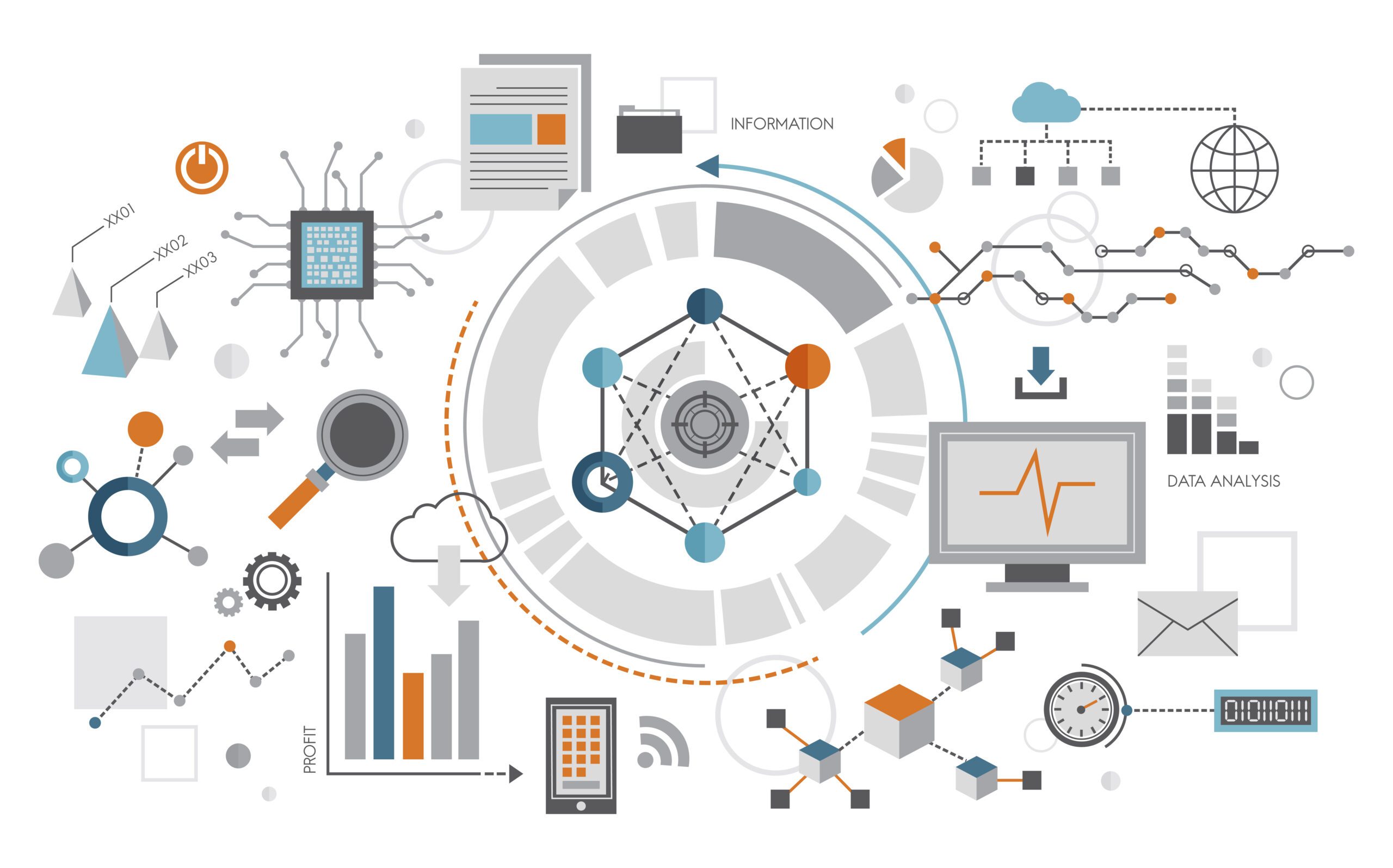
From the very first day, I started my data analytics career, I found that data is the king of the modern world and the driving force behind organizational success.
Constant technological advancements, such as faster data processing speeds and increased bandwidth, fuel the modern data ecosystem. This ecosystem is a dynamic and thriving realm that includes interconnected entities and a wide range of data sources.
Let’s see the basics of this evolving ecosystem, including its diverse sources, challenges in integrating data, the importance of collaboration among stakeholders, and the game-changing impact of technologies like cloud computing, machine learning, and big data.
The Diverse Array of Data Sources:
The modern data ecosystem draws data from various structured and unstructured sources in different formats. These sources include:
- Text, Images, and Videos: Text documents, social media posts, web pages, images, and videos provide valuable information.
- Click Streams and User Conversations: Valuable insights can be derived by analyzing user interactions, click streams, and conversations across digital platforms.
- Internet of Things (IoT) Devices: Interconnected IoT devices, such as sensors and smart devices, generate real-time data streams.
- Real-Time Streaming Events: Organizations can make agile decisions by analyzing real-time data from events as they happen.
- Legacy Databases and Professional Data Providers: Historical data repositories and curated datasets from established databases and professional data providers enrich the data landscape.
The Data Journey:
To effectively manage data in the modern data ecosystem, organizations must go through several stages:
- Data Acquisition: Various sources gather Data and consolidated into a central repository. Challenges include ensuring data reliability, security, and integrity.
- Data Organization and Preparation: Once the data is centralized, it needs to be organized, cleaned, and optimized for easy access by end-users. Compliance with regulations and standards, as well as standardizing master data, is crucial.
- Data Management and Repository: Robust data management practices ensure high availability, flexibility, accessibility, and security of data repositories. These practices facilitate smooth data flow, storage, and utilization.
Collaboration and Action:
The modern data ecosystem thrives on collaboration among stakeholders, who play vital roles in utilizing data insights. Key stakeholders and their requirements include:
- Data Analysts and Scientists: Experts in analyzing data patterns and trends leverage advanced tools to derive actionable recommendations and predictions.
- Business Stakeholders: Decision-makers and executives use data to drive strategic initiatives. They need tailored reports, interactive dashboards, and visualizations to make informed decisions.
- Applications and Programmers: Developers and programmers create custom applications, interfaces, and APIs to integrate data into existing systems, improving user experiences and operational efficiency.
The Impact of Emerging Technologies:
The modern data ecosystem is influenced by transformative technologies that unlock new possibilities, such as:
- Cloud Computing: Cloud technologies offer limitless storage, high-performance computing, and access to cutting-edge tools and libraries. This enables scalability, flexibility, and cost-efficiency, helping businesses maximize the potential of data.
- Machine Learning: By training machine learning algorithms on extensive datasets, data scientists create predictive models that reveal valuable insights. These algorithms continuously adapt and improve, resulting in accurate predictions and optimized processes.
- Big Data: Organizations can handle massive volumes, varieties, and velocities of data using big data technologies. Advanced data analytics help uncover hidden patterns, gain actionable insights, and drive innovation.
Now you have a simple idea of the world of data analytics, and the modern data ecosystem presents a vast network driven by the exponential growth of data sources and technological advancements. Organizations that successfully navigate this ecosystem unlock the transformative power of data, leading to greater success.
By updating daily and with the help of these technologies, fostering collaboration among stakeholders, and leveraging the wealth of insights that data provides, businesses can revolutionize their operations and gain a competitive edge in today’s competitive world. The modern data ecosystem holds immense potential for those willing to explore and harness its capabilities.